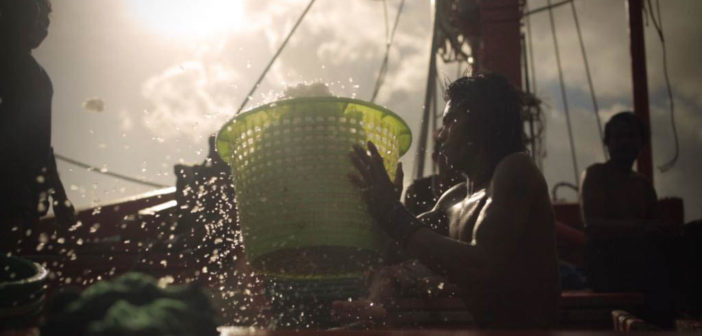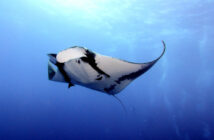Is Canada contributing to a global web of illegal fishing? When Canadians order seafood at a restaurant in Toronto or go to the fish counter at a grocery store in Edmonton, the last thing that’s likely to be on our minds is modern slavery – but the risk that we’re buying seafood products linked to illegal practices is all too real. Oceana Canada’s new report, Untraceable: The Consequences of Canada’s Poorly Regulated Seafood Supply Chains, highlights the hidden costs and human rights abuses in our opaque seafood supply chains.
Illegal, unreported and unregulated (IUU) fishing is an enormous problem worldwide: it’s destroying our oceans, decimating fish stocks and exploiting vulnerable individuals. Global IUU fishing catches are estimated at 26 million tonnes annually and valued at between $10-$23 billion USD. And while fisheries here in Canada are well-regulated and at lower risk of fraud and illegal practices (though not immune from these issues), that doesn’t mean that we’re not unwittingly contributing to this global problem – and paying for it.
Oceana Canada worked with leading fisheries economists at the University of British Columbia and found that our opaque supply chains are costing us: Canada is losing up to $93.8 million in tax revenue each year due to the illicit seafood product trade and Canadians are spending up to $160 million a year on seafood caught through IUU fishing.
Shockingly, weak traceability requirements also mean that Canada could be contributing to egregious human rights abuses like modern slavery. Traceability allows us to track where our seafood came from – from the water to our plates – and without it, human rights abuses and other crimes can be hidden. Instances of slavery and forced labour can occur in areas with poorly controlled fishing industries, with individuals tricked or kidnapped against their will and forced to work in horrific conditions on fishing vessels. Victims of these abuses can be trapped at sea for months or even years on end. Some fishing vessels offload their catch to other ships, allowing them to remain at sea for long periods of time without ever returning to port. Individuals trafficked into slavery can have their documents taken from them, trapping them in foreign countries and meaning that they can never return home.
It’s unthinkable that we as Canadian consumers could be unwittingly helping to perpetuate these practices and human rights abuses. The dark realities lurking in global seafood supply chains can be complex and difficult to address, but that is all the more reason for Canada to do everything it can to make sure that we are part of the solution, not part of the problem.
Illegal fishing practices can be addressed and the Canadian government can do its part to ensure that illicit products are not entering our supply chains. The solution is boat-to-plate traceability – tracing a product from its point of catch all the way through the supply chain, along with key information about what species a product is; and the where, how, and when it was caught or farmed. Traceability not only makes our supply chains safer and keeps illegal products out, it has also been shown to lower instances of seafood fraud and mislabelling, giving consumers confidence in what they’re buying.
It’s understandable then, that when Oceana Canada has asked consumers about this issue, we’ve seen consistent support for implementing boat-to-plate traceability here at home. In our new report, we found that 95 per cent of people who eat seafood support the government’s commitment to implement a boat-to-plate traceability system and 85 per cent would be more confident purchasing seafood if product labels included where, when and how seafood was caught.
Traceability isn’t a new concept. Other parts of the world – such as the European Union and the United States – have put traceability measures in place. We know it can be done, and we know that it works. In 2019, the federal government committed to developing boat-to-plate traceability in Canada, but no timeline has yet been put in place.
To keep products of illegal fishing out of the Canadian market and to ensure that honest Canadian fishers retain consumer trust and keep up with global standards, the government must act to implement boat-to-plate traceability in Canada. Add your voice to our petition to #StopSeafoodFraud here.









